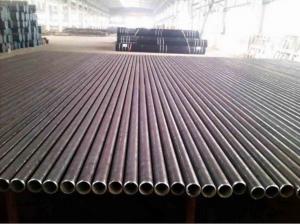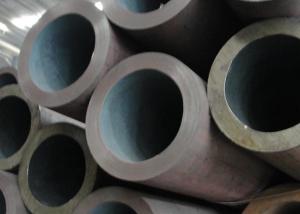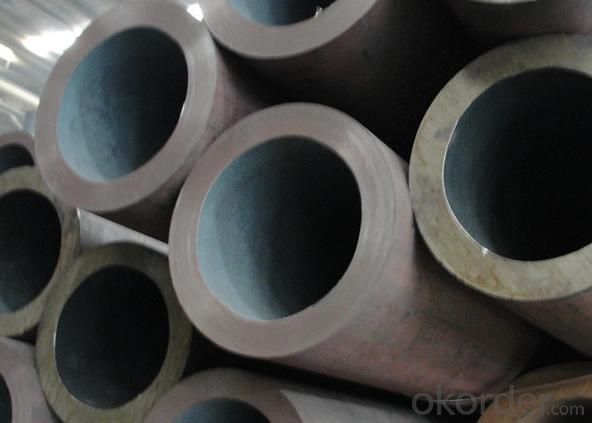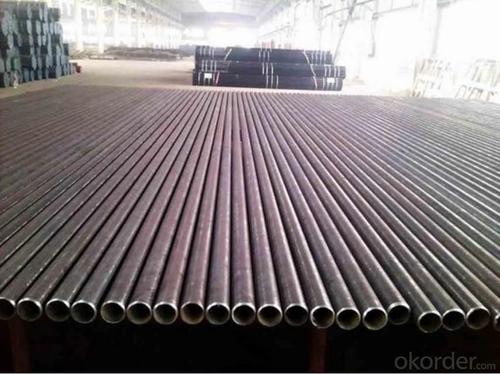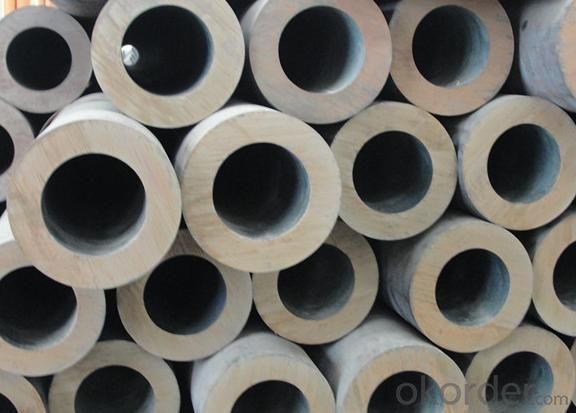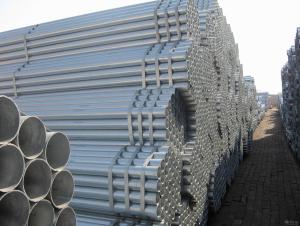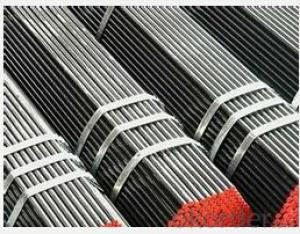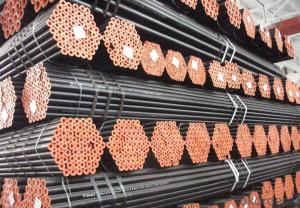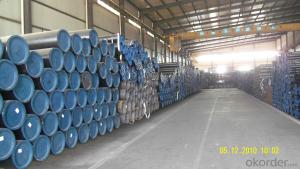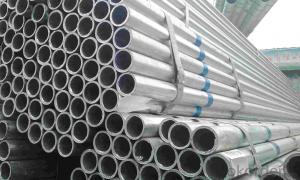Seamless Steel Tubes For High-pressure For Chemical Fertilizar Equipments
- Loading Port:
- China Main Port
- Payment Terms:
- TT or LC
- Min Order Qty:
- 50mt m.t.
- Supply Capability:
- 5000 Tons Per Month m.t./month
OKorder Service Pledge
OKorder Financial Service
You Might Also Like
Specifications of Seamless Steel Tubes For High-pressure For Chemical Fertilizar Equipments
1)superior in quality
2) quick in delivery
3) OD:8-720mm WT:3-60mm
4) Material:10# 20#,304 Q235 Q235B
high-pressure seamless steel tubes for chemical fertilizer equipments
Size OD: 3-60mm
WT: 8-720MM
Standard of Seamless Steel Tubes For High-pressure For Chemical Fertilizar
Standard: GB/T8162 GB3087 BGZJ518-2006 GB/T8163
Grade : 20#,304 Q235 Q235B Q235C Q235D and so on
End : BE and Plain end with pipe caps
Technique :Cold rolled, hot rolled, cold drawn
Usage of Seamless Steel Tubes For High-pressure For Chemical Fertilizar
Usage to industrial pipe, high-pressure boiler pipe,and food industry
Payment of Seamless Steel Tubes For High-pressure For Chemical Fertilizar
TT and irrevocable L/C
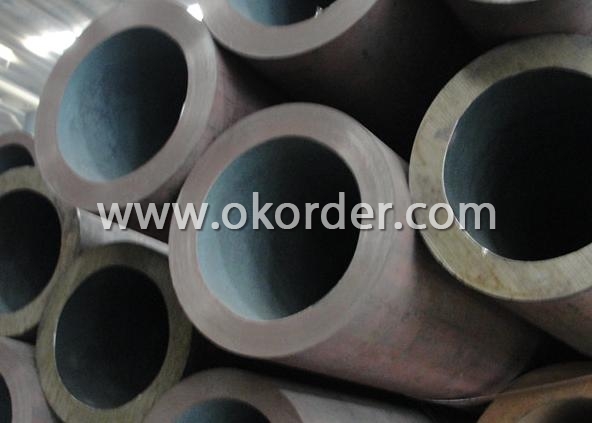
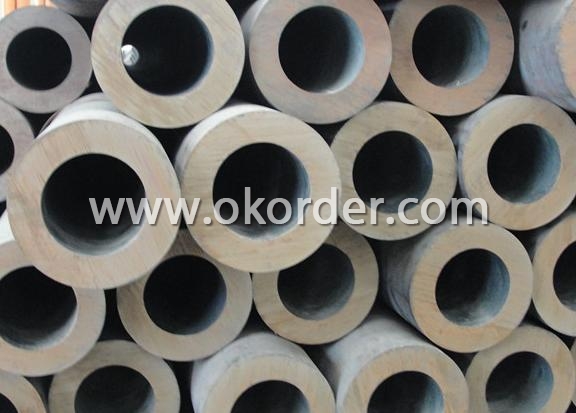
- Q: What is the purpose of a steel pipe coating?
- The purpose of a steel pipe coating is to provide a protective layer that prevents corrosion and extends the lifespan of the pipe. It also enhances the pipe's resistance to various environmental factors and improves its overall performance.
- Q: Does seamless steel tube have a bend of 135 degrees?
- Other name: 90 degree elbow, right angle bend, love bend, punching elbow, pressing elbow, mechanism bend, welding elbow, etc..Usage: connect two pipes with same nominal diameter or different pipe, make the pipe bend at 90, 45, 180 degrees and various degrees.Bending radius is less than or equal to 1.5 times the diameter of the elbow. It is 1.5 times larger than the pipe diameter and belongs to the elbow
- Q: How are steel pipes used in the construction of shipbuilding?
- Steel pipes are widely used in shipbuilding as they provide structural support and are essential for various systems and components such as ventilation, fuel, and water supply. They are used to create the framework of the ship, including the hull, bulkheads, and decks. Additionally, steel pipes are crucial for piping systems that transport fluids and gases throughout the ship, ensuring its proper functioning and safety.
- Q: Can steel pipes be used for hydroelectric power plants?
- Yes, steel pipes can be used for hydroelectric power plants. Steel pipes are commonly used in hydroelectric power plants for various applications. They are primarily used in the penstock, which is a pipe that carries water from the reservoir to the turbine. The penstock is under high pressure, and steel pipes have the necessary strength and durability to handle the pressure and flow of water. Steel pipes are preferred in hydroelectric power plants due to their high tensile strength, corrosion resistance, and longevity. They can withstand the high-pressure conditions and flow rates of water, ensuring the efficient transfer of water from the reservoir to the turbine. Additionally, steel pipes have the advantage of being easily fabricated and installed. They can be customized to fit specific project requirements and can be welded or bolted together to form the desired length and shape. Furthermore, steel pipes are cost-effective compared to other materials commonly used in hydroelectric power plants, such as concrete or fiberglass. They provide a reliable and cost-efficient solution for conveying water in hydroelectric power plants, contributing to the overall efficiency and effectiveness of the power generation process. In conclusion, steel pipes are a suitable and commonly used material for hydroelectric power plants. They offer the necessary strength, durability, and cost-effectiveness required for conveying water from the reservoir to the turbine, making them an ideal choice for this application.
- Q: Can steel pipes be used for underground water treatment systems?
- Certainly, underground water treatment systems can utilize steel pipes. Renowned for their durability, strength, and resistance to corrosion, steel pipes prove themselves suitable for a range of uses, including underground water treatment systems. They possess the ability to endure the pressure and environmental circumstances found underground, guaranteeing the secure and effective conveyance of water within the treatment system. Nevertheless, it is crucial to take into account the water quality and the likelihood of corrosion in the particular location when opting for the type of steel and implementing safeguarding measures, such as coatings or cathodic protection, to avert corrosion and ensure the pipes' longevity.
- Q: How are steel pipes marked for identification?
- Steel pipes are marked for identification through a process called pipe marking. This involves applying labels or markers on the surface of the pipes to provide relevant information about their specifications and characteristics. The markings typically include details such as the pipe's size, grade, material composition, manufacturer's logo or name, and any other relevant codes or standards. These markings are crucial for identification and help ensure that the correct pipes are used for specific applications, as well as for maintenance and repair purposes. Additionally, the markings also aid in quality control and traceability, enabling easy identification and tracking of pipes throughout their lifecycle. Overall, proper identification of steel pipes through clear and durable marking systems is essential for maintaining safety, efficiency, and compliance in various industries where these pipes are utilized.
- Q: Are steel pipes suitable for underground nuclear waste storage?
- Underground nuclear waste storage does not lend itself to the use of steel pipes due to their unsuitability. Despite their strength and durability, steel pipes are susceptible to corrosion when in contact with certain forms of nuclear waste. As time passes, the radioactive elements can corrode the steel pipes, potentially leading to leaks and the contamination of the surrounding environment. Furthermore, steel pipes lack the necessary design to endure the extreme temperatures and pressures commonly found in nuclear waste storage facilities. Consequently, alternative materials like corrosion-resistant alloys or concrete are generally employed for underground nuclear waste storage to guarantee the confinement and isolation of hazardous substances.
- Q: How are steel pipes protected against soil movement or settlement?
- Steel pipes can be protected against soil movement or settlement through the use of various measures such as proper design and installation techniques, including the use of appropriate bedding materials, backfilling with compacted soil, and the addition of protective coatings or linings. Additionally, the implementation of geotechnical investigations and monitoring systems can help identify potential soil movement or settlement issues in advance, allowing for proactive measures to be taken to mitigate any potential damage to the steel pipes.
- Q: Fastener type steel pipe scaffold steel pipe wall thickness
- The scaffold steel pipe shall be made of 48.3 * 3.6 steel tube. The maximum mass of each steel tube shall not be greater than 25.8kg.Fastener type steel pipe scaffold: for building construction and build, bear the load by the fastener and steel pipe and other scaffolding and support frame, collectively referred to as scaffolding. The fastener is a fastening piece which is fastened by bolts.
- Q: Can steel pipes be used for fencing?
- Yes, steel pipes can be used for fencing. They are a popular choice for fencing due to their strength, durability, and ability to withstand harsh weather conditions. Steel pipes provide a sturdy and secure barrier, making them suitable for various fencing applications such as residential, commercial, and industrial settings.
1. Manufacturer Overview
| Location | Wuxi, China |
| Year Established | 1991 |
| Annual Output Value | 300,000Tons |
| Main Markets | Europe; Southeast Asia; etc. |
| Company Certifications | API 5L;API 5CT;API Q1;ISO/TS29001 |
2. Manufacturer Certificates
| a) Certification Name | |
| Range | |
| Reference | |
| Validity Period |
3. Manufacturer Capability
| a) Trade Capacity | |
| Nearest Port | Wuxi; Shanghai |
| Export Percentage | 41% - 50% |
| No.of Employees in Trade Department | 3900-4000 People |
| Language Spoken: | English; Chinese; Spanish |
| b) Factory Information | |
| Factory Size: | Above 450,000 square meters |
| No. of Production Lines | Above 10 |
| Contract Manufacturing | OEM Service Offered;Design Service Offered |
| Product Price Range | Average |
Send your message to us
Seamless Steel Tubes For High-pressure For Chemical Fertilizar Equipments
- Loading Port:
- China Main Port
- Payment Terms:
- TT or LC
- Min Order Qty:
- 50mt m.t.
- Supply Capability:
- 5000 Tons Per Month m.t./month
OKorder Service Pledge
OKorder Financial Service
Similar products
Hot products
Hot Searches
Related keywords
